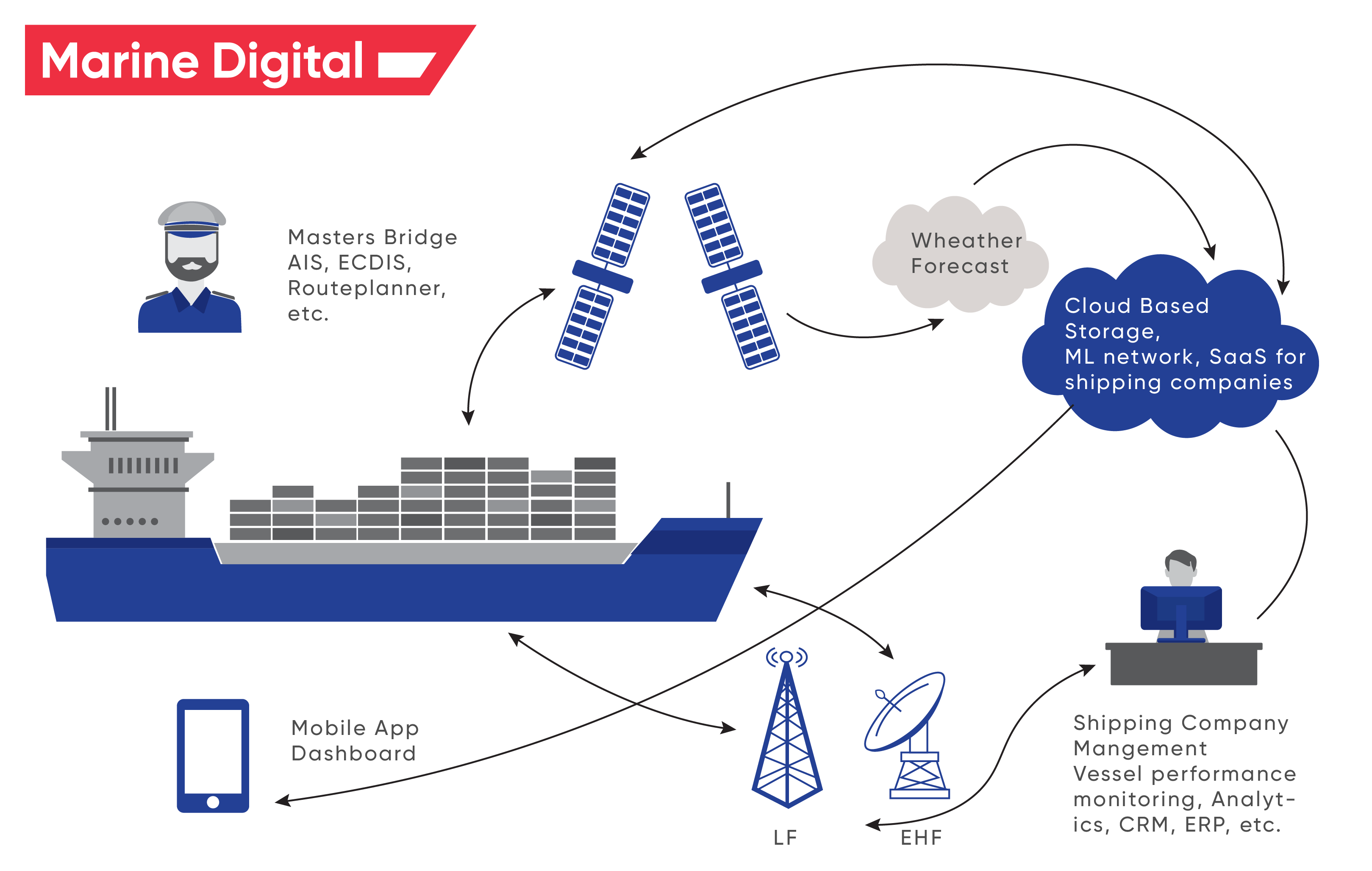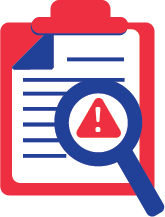Data Mining on ships. What does it take to leverage Big Data in maritime logistics?
Analyzing data from multiple sources will enable to improve the management of vessel performance in key areas such as fuel consumption, energy management, emission control, monitoring the health of the vessel's equipment and equipment, and route optimization
Significant improvements in communication with ships and new digital sensor technologies in shipping now allow receiving and transmitting telemetry of large amounts of operational data in maritime.
The digital revolution in the maritime industry is gaining momentum, with ships of all types becoming sophisticated sensor hubs to help deal with the new regulations and support more efficient fleet and vessel operations.
Already, owners and operators are managing information and using real-time analytics to continuously monitor performance and gain operational benefits. Therefore, Offshore Big Data platforms will increasingly have a huge impact on the development of the industry.
In particular, synchronizing and analyzing data from multiple sources will enable operators to make more informed decisions faster and improve the management of vessel performance in key areas such as fuel consumption, energy management, emission control, monitoring the health of the vessel's equipment and equipment, and route optimization (e.g. , taking into account weather conditions and underwater currents).
Thus, data mining in the shipping industry will have a positive impact on the safety and quality of service for customers, give a competitive advantage for the shipping company and bring new knowledge and added value to managers. The availability of digitized data and the methodology for processing them for maintenance prediction helps in making more efficient decisions, monitoring assets and making optimal use of both an individual vessel and the entire fleet.
Onboard and shipboard sensors are already being used to measure various aspects of a ship's performance, such as fuel consumption, engine torque, RPM and power, as well as temperature, pressure, electrical load, ship speed, and a host of other parameters. At the same time, an unprecedented amount of data on ships and engines, not to mention weather, sea state and other external factors, is generated from different sources and in different formats. In fact, it has been estimated that a modern ship generates over 20 gigabytes of onboard data every day.
However, while this amount of information undoubtedly provides added value to the operator, without effective analysis it can also create serious problems.
The digital revolution in the maritime industry is gaining momentum, with ships of all types becoming sophisticated sensor hubs to help deal with the new regulations and support more efficient fleet and vessel operations.
Already, owners and operators are managing information and using real-time analytics to continuously monitor performance and gain operational benefits. Therefore, Offshore Big Data platforms will increasingly have a huge impact on the development of the industry.
In particular, synchronizing and analyzing data from multiple sources will enable operators to make more informed decisions faster and improve the management of vessel performance in key areas such as fuel consumption, energy management, emission control, monitoring the health of the vessel's equipment and equipment, and route optimization (e.g. , taking into account weather conditions and underwater currents).
Thus, data mining in the shipping industry will have a positive impact on the safety and quality of service for customers, give a competitive advantage for the shipping company and bring new knowledge and added value to managers. The availability of digitized data and the methodology for processing them for maintenance prediction helps in making more efficient decisions, monitoring assets and making optimal use of both an individual vessel and the entire fleet.
Onboard and shipboard sensors are already being used to measure various aspects of a ship's performance, such as fuel consumption, engine torque, RPM and power, as well as temperature, pressure, electrical load, ship speed, and a host of other parameters. At the same time, an unprecedented amount of data on ships and engines, not to mention weather, sea state and other external factors, is generated from different sources and in different formats. In fact, it has been estimated that a modern ship generates over 20 gigabytes of onboard data every day.
However, while this amount of information undoubtedly provides added value to the operator, without effective analysis it can also create serious problems.
How to work with data received from the ship?
Different sensors usually transmit data to different monitoring systems. On a ship, ashore (in fleet management, in a port, in a terminal, etc.), different system interfaces and separate services are used for different tasks, which usually do not interact with each other. Sensors also often use a variety of communication protocols, including formats such as Ethernet, serial, CANbus, 4-20mA, and others.

Therefore, large and complex datasets are difficult to process and analyze using traditional processing techniques and applications.
To overcome this problem, and as part of a program that looks at a systematic approach to power management throughout the ship, work has recently been undertaken to develop a standardized methodology for collecting raw data in real time and successfully transforming it into a format that allows users to perform functions and make decisions.
Marine Digital developed a tool that connects to the bridge of a ship and collects data on established indicators for monitoring the vessel's performance. Further, the required data array is transmitted via secure communication channels to the cloud infrastructure with machine learning models, where enrichment from external sources (satellites, weather forecasts, etc.) and further data processing takes place.
During the development process, we have formed 4 solutions that are suitable for charters, shipowners and fleet managers of different types of vessels for:
Marine Digital FOS allows the managers of the shipping company to plan optimal routes in terms of fuel consumption efficiency, as well as the ability to monitor the vessel's performance, promptly respond to failures and take proactive measures. Considerations for managing energy consumption of the entire ship using a common hub approach provide a solution to this problem and already demonstrate the ability to analyze and aggregate data on board the ship, and the ability to transfer and further interpret onshore.
The advancement of new sensor technologies and other measurement applications focused on receiving and transmitting data has a significant impact on the shipping industry. This trend will become more and more important and will increasingly depend on the ability to process and interpret large amounts of data in real time so that key operational decisions can be made. New onboard data mining techniques provide a systematic means to help shipowners and operators address key operational issues related to increasing productivity, minimizing vessel downtime and reducing emissions.
Read more about Big Data in Maritime and Data analytics in maritime/shipping
To overcome this problem, and as part of a program that looks at a systematic approach to power management throughout the ship, work has recently been undertaken to develop a standardized methodology for collecting raw data in real time and successfully transforming it into a format that allows users to perform functions and make decisions.
Marine Digital developed a tool that connects to the bridge of a ship and collects data on established indicators for monitoring the vessel's performance. Further, the required data array is transmitted via secure communication channels to the cloud infrastructure with machine learning models, where enrichment from external sources (satellites, weather forecasts, etc.) and further data processing takes place.
During the development process, we have formed 4 solutions that are suitable for charters, shipowners and fleet managers of different types of vessels for:
Marine Digital FOS allows the managers of the shipping company to plan optimal routes in terms of fuel consumption efficiency, as well as the ability to monitor the vessel's performance, promptly respond to failures and take proactive measures. Considerations for managing energy consumption of the entire ship using a common hub approach provide a solution to this problem and already demonstrate the ability to analyze and aggregate data on board the ship, and the ability to transfer and further interpret onshore.
The advancement of new sensor technologies and other measurement applications focused on receiving and transmitting data has a significant impact on the shipping industry. This trend will become more and more important and will increasingly depend on the ability to process and interpret large amounts of data in real time so that key operational decisions can be made. New onboard data mining techniques provide a systematic means to help shipowners and operators address key operational issues related to increasing productivity, minimizing vessel downtime and reducing emissions.
Read more about Big Data in Maritime and Data analytics in maritime/shipping

TOP 5 factors contributing to lower fuel costs for Shipping companies
Get a presentation with a full description of the features and free pilot project with trial of Marine Digital FOS for 2 months
"Clicking the button, you consent to the processing of personal data and agree to the privacy policy"

Get an overview "The Pathway to Zero Carbon Shipping:
IMO Compliance and CII Optimization through SEEMP" on email and download it for FREE! Leave your email now!
"Clicking the button, you consent to the processing of personal data and agree to the privacy policy, as well as consent to subscribe to the newsletter. "
Аdvantage of Fuel Optimization System from Marine Digital:

Marine Digital FOS can be integrated with other system and third-party's solutions through the API. To implement vessel performance monitoring for any vessel, we are using mathematical algorithms, machine learning and the same equipment as in FOS. The more data we collect from vessels, the more precise reports and recommendations our system will perform according to your individual requirements in fleet management.
If you have any questions about the solutions and the Marine Digital System platform, write to us, we will be happy to answer
If you have any questions about the solutions and the Marine Digital System platform, write to us, we will be happy to answer

Increased business process speed

Reducing to zero the number of errors

Best offer to the clients

Reduction in operating expenses
Have a questions?





